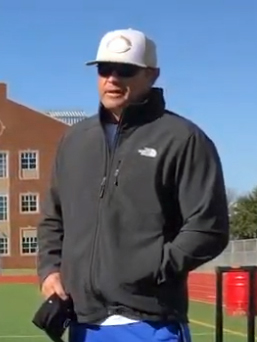
Texan Randy Walraven was a 17th-round draft choice of the Reds in June 1974. He pitched two seasons in the Cincinnati organization: for Billings in the Pioneer League in 1974 (5-3, 2.69 ERA) and then for the 1975 Eugene Emeralds and Greg Riddoch. He battled elbow problems for most of his career, and comeback attempts with Seguin in 1976 and Daytona Beach in 1978 didn’t work out. He played top-level slow-pitch softball for many years, and he coaches youth baseball today.
Jim Haught When did you first get interested in baseball?
Randy Walraven When I was just a young kid, my grandpa, Red Powell, played with the Fort Worth Cats. And I was kinda brought up through baseball. And I mean, of course back then, you 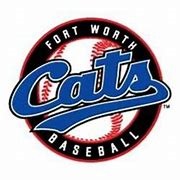 know sandlot is where — we didn’t stay inside. We were out playing all the time. And that’s where I learned how to play: the sandlot. And that’d be all day long, every day. And then we had league games, I’d play up. Even at eight years, nine years old, I was playing against kids 12-13, and doing pretty good.
know sandlot is where — we didn’t stay inside. We were out playing all the time. And that’s where I learned how to play: the sandlot. And that’d be all day long, every day. And then we had league games, I’d play up. Even at eight years, nine years old, I was playing against kids 12-13, and doing pretty good.
But I had older brothers. And if I was going to be able to play in sandlot, hey, I’m going to have either be pretty good, or — I didn’t want to sit out. So that’s why I kind of got pushed in that way to get better and better.
JH Were you always a pitcher, or were you the kid who was the good athlete who always played short and hit third, until later? How did that go?
RW That’s the way it was. And if you can believe this, I was left-handed and I even played shortstop a lot of times, left-handed!
Even in some All-Star games in the summer, they’d have me at short. If I wasn’t pitching, I’d go to short. So I could always field; I couldn’t understand why — of course I do now — but why they use a righty, because I could turn the double play better than a righty.
But yeah, I played everywhere, and loved it. Loved it. Play anywhere.
JH One other unusual thing about you is you hit right and threw left. There aren’t many guys who do that.
RW That’s just the way I was brought up. I always could use my right hand well. I played every sport — I could have gone to college in football – but I could use my right hand in basketball or in a lot of things, just pretty good.
But I just kind of got on the right side and started hitting, and it just felt natural to me that way. And never went over to the left side. The only time I went over to the left side is if I got in a slump right-handed. A guy told me one time, just switch over to the left side and hit a while. And it always worked for me, you know?
JH That helped you see the ball better, doing that?
RW Yeah. It would just do something, and then you get – even if you just took batting practice from the other side and then hopped back over after a while, it does something. I don’t know how to explain it, but it always helped. Now, I always could hit. Did you meet Paul Moskau?
JH Yes, I did.
RW Well, me and him could hit. As pitchers, Greg pinch-hit me a couple of times, and Paul too, in regular games.

JH I see you hit .286 in that 1975 season. I mean, that’s a guy who can hit a little bit.
RW As a pitcher, it wasn’t too bad. But Paul, man, he could do it all. Actually, I think he was, I believe he was a first-baseman in college or something and they put him on the hill, which he did real well. I think he went on to the bigs.
JH In fact, he broke Greg Riddoch’s home run record for NAIA, and Greg never let him forget that, either. [laughter] That’s pretty impressive stuff, but boy, not many guys throw left and hit right.
You said you were always playing up as a kid. When did you start pitching more?
RW I mean, I’m left-handed. And our high school started baseball my senior year, and – but I was pitching way up. I was pitching in an all-Black league in Fort Worth. And they would come by and get me and take me, and I’d pitch there. And man, it just started coming to me.
I could always throw a football a long way; always had a good arm. And I started developing a good curve ball. I pitched a few no-hitters in high school — two or three or four – went to the playoffs, and stuff like that.
You know, I probably should have gone to college, and I did not. Man, my eyes were set on pro ball as a young kid. I didn’t have a lot of people telling me exactly what I should do. And so I went ahead and signed with the Reds.
JH Was being drafted by the Reds in particular a big shot in the arm — for you to be going to the team? It was 1974, and they hadn’t won it all yet, but they were still rolling pretty good.
RW Yeah, they were rolling good. And yeah, that was a big, big deal when they started winning the World Series. That was a special moment right there, being with them.
And I’ve been around organizations — been with Astros and going around the Florida State 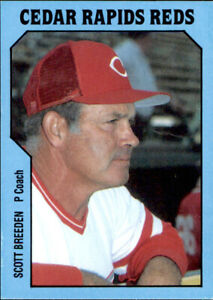 League and all these other leagues, and in spring training camps; and the Reds, at the time they were — they had the best organization, I thought. I think everything was always on top of everybody else’s, it just seemed. I know, after being with the Astros that the Reds handled it differently – more classy — and they had good pitching coaches: Scotty Breeden and several others. I got a lot from them, man.
League and all these other leagues, and in spring training camps; and the Reds, at the time they were — they had the best organization, I thought. I think everything was always on top of everybody else’s, it just seemed. I know, after being with the Astros that the Reds handled it differently – more classy — and they had good pitching coaches: Scotty Breeden and several others. I got a lot from them, man.
The 1974 Draft
RW When I got drafted, I think I was 17; I was just a baby. And I mean, I had to grow up quick again, and I got in there with kids coming out of college in their twenties, in my first year. And it was pretty rough.
I had a pretty good year, and I think I had like 40- or 50-something scoreless innings; I finished in the top 10 of pitching in that league. My ERA finally got down around two. I had a good coach there too [Jim Hoff]. And then it was kinda like Greg Riddoch. They were both good guys. Guys you’d die for, man.
JH So 1974 in Billings, you went 5-3 with a 2.69 ERA. And 10 starts and seven relief appearances, four complete games. So 67 innings for a short-season league; that’s a pretty fair amount of innings.
RW Yeah. And I was actually hurt. I remember, I think it was [teammate] John Harrison. He was one of my biggest fans. I love John, man. He knows how bad I was hurting, because I’d have to start warming up an hour before a game.
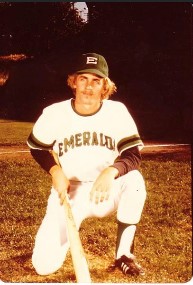
But I became a starting pitcher because a guy got hurt. And I thought if I get hurt, I’m gonna lose my spot. So I just kept pitching through it. And I probably should’ve gotten some attention on it, but I didn’t, and John come out there with me, way before [game time]. He had kept telling me, man, don’t do it. Just go tell them. I said, nah, I can’t do it.
After I loosened up, I could get through it. I could pitch then. But it just nagged me for a while.
JH What kind of injury was it?
RW It was an elbow injury, and I don’t really — I never did get it checked. And I mean, by looking at it today, you could tell, but I just kept trying to work through it. And eventually I would get through it.
In between innings I’d go through the tunnel and I had the trainer work on me, and I listened to the game on the radio; we got two outs, I put my stuff back on and headed back out. And it kind of went that way for a while. And so it was I just wasn’t going to — I just couldn’t — after you got a starting spot, I was afraid to let them know I was hurt. I was afraid I’d lose it.
JH Is that part of the idea that, okay, I’m a 17th-round draft pick and they don’t have a lot invested in me, and they could turn around and cut me any time, for any reason?
RW Yeah, that’s right.
JH Do you know exactly what was — was it a nerve thing, or chips, or — ?
RW I think it probably was a nerve in there. I mean, my elbow’s a little bit – it sticks out, even today. And I never did even have it looked at. I had some nerve damage in my tricep later on, kind of lost some of my tricep to a nerve. And I never did know. I didn’t really hear of any pitchers that had nerve problems after so many years, but my left side, it’s got some nerve damage to it, you know?
You know, it’s just one of those deals. I don’t know.
JH In that 1974 year, you had four complete games and a shutout. You were getting regular work, so it’s not like that thing is going to heal.
RW Even when my arm hurt, I think the last four games were my best games; even with it hurt. And my confidence was good. I was relaxed, but my arm, — once I got it loosened up, I could maintain, and it was — I could just kind of set in and then take care of it between innings. And for some reason I really clipped along there pretty good.
JH On that 1974 Billings team there’s Marlon Styles, Tom Watkins. And you had Mike Grace and Steve Henderson and Dan Norman and Ron Oester and Rafael Santo Domingo, and Harry Spilman, Dan Dumoulin, and Mike LaCoss. I mean, that’s a lot of guys that ended up getting big-league time off those teams.
RW Yeah, they did. I know Mike LaCoss went on and played [in the big leagues], I think he made the All-Star team. And then me and him always had competition with each other in that first year. I finished like one or two [wins] more ahead of him in the league. Mike, I got you on that one, you know.
But anyway, Harry Spilman worked hard. He was real good friends with Ray Knight. And I hung out with Ray Knight and Harry, and Ray knew Rose and George Foster. Heck, I’d hang out with them during spring training and stuff.
So I’d go out and shag for Rose every day, man. He would stay extra; that’s what I will always say about Rose. Everybody would kind of take their BP and leave, but he’d stay, you know, and I’d be out there – there’d with be four or five of us out there and he’d always thank us afterwards. We were minor-leaguers, and him and Morgan stayed. Morgan and Rose would stay later and do some work.
JH It’s nice that the big-league guys appreciated you hanging around, helping out.
RW I’m tellin’ ya! Because that was my life, man. I just — watching them on TV and radio, listened to them. And then once I got hanging around them, I just couldn’t believe it. That was a special moment.
Matter of fact, the first time I was in spring training, I came out, sat on one of the picnic tables out of the dressing room, and there was a black glove laying there — where back in the Seventies, you didn’t see black gloves, hardly. So I picked it up, I’m checking it out. I had my back turned, somebody comes up and I’m still looking at the glove, and the person says, man, what you think about that? Looks pretty good, don’t it? When I turned around, hell, it was Rose! Well, I couldn’t give it back to him fast enough. You know, he said, no, man, just look at it. It’s a good glove. And we started talking right then.
So everything was going pretty good. That was a pretty good deal, right there.
The 1975 Season
RW Even going into the 1975 season, my ERA was up. I could trip along pretty good – keep us in the game — but I just couldn’t get going, you know, and I think it had something to do with that injury. And I’d hang around long enough in games until we hit, and win us some games, you know?
JH Because I see 15 games and 13 starts. So there were only a couple of times you came out of the bullpen at all.
RW Yeah. That’s a good team. It really was. My ERA would go down to three and then go back up — I think probably finished at six. I don’t know. But it was up there.
JH 5.59.
RW I would clip along pretty good, and then all of a sudden there would be a three-run inning here and there. But if I kept hanging around long enough, we could win.
JH There’s one game I want to ask you about; you’ve got to remember this one.
You were the winning pitcher against Bellingham when you guys were down 9-0 and came back and won 14-9 [laughter]. That was one of the only times you came in in relief, and you got a base hit also in that game.
RW Yeah. We just got hot. Things got to rolling. I remember coming in thinking, well, he’s 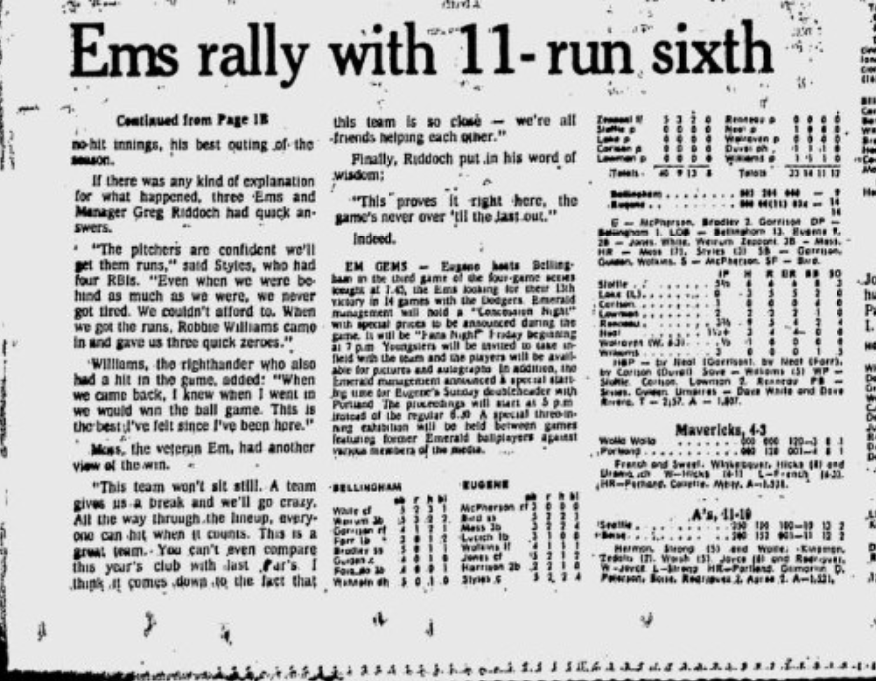 throwing me in here to just kind of get a little work, but then we started coming back, coming around. And like I say, this team could hit; we could hit.
throwing me in here to just kind of get a little work, but then we started coming back, coming around. And like I say, this team could hit; we could hit.
JH An 11-run sixth inning.
RW So then after we got through, we got up and I was thinkin’, I’ll get me a win out of this one, you know?
JH There are other games in that season where you did well: you pitched a complete game here or a shutout there. So was it a matter then just trying to manage your elbow problem, mostly? Was that the deal?
RW Yeah, I was just trying to work my way through the season. And they wanted me, after my first year, to go to instructional ball. And I really wanted to, because that’s where Rose and all of them go hang out, during the winter, you know?
I wanted to get there, but then at the very end of the season, I told them about my arm. And they said to go home and rest. But yeah, it was just a struggle here and there with it.
When you’re a late pick … there’s just always a different amount of pressure on; it’s almost like, you just cannot mess up one time, you know?
And when you’re a late pick, like I was, and there’s just always a different amount of pressure on; it’s almost like, you just cannot mess up one time, you know? And even though I could throw hard, I thought, well, that should be good enough. But I guess it wasn’t.
JH Do you recall how you hurt your elbow? Was there a particular pitch you did it on, or — ?
RW No, I think I pitched probably too much in high school. And I never did get a chance to rest, really.
About the 1975 Ems
JH All these years later, your 1975 teammates are still having these reunions, and this team was so super-close. What made that team special to you?
RW You know, they could, — everybody was in the same kind of apartment complex, and it just, we just meshed. It was a bunch of good guys – old George McPherson, John Underwood, and old Bill Bird, I mean a bunch of good guys, man.
You know, I’ve been on a lot of teams and you always got some guys that — they’re pretty good ballplayers, but you don’t want to hang out with them. But this team was different. Just a bunch of guys that, how they had each other’s back, and you’d die for them, you know?
1975 Emeralds Teammates
Marlon Styles
RW Marlon Styles, he can make you laugh without saying a word, you know?
JH And a lot of people raved about him. He lives here in Cincinnati, still. They raved about him as a catcher. How was he to throw to for you?

RW Marlon! I love Marlon. I loved him back there. And I liked his wisdom. I liked his savvy, and he didn’t mind getting out there and getting on me, you know? He was just good. He was always good, and worked hard for you. He’d sit down in front of the plate, block a play coming in. I mean, he was hard-nosed. I had him my first year, too, and I really didn’t want anybody else behind the plate but him.
Marlon was a good ballplayer, man. He’d come out and talk to me, settle me down. You know, I’m a little bit too hyped up, calm down a little bit, you know, miss a couple of pitches outside or something: Hey, man, you can just go on so long like that, but then they’re going to start tagging you, you know, you got to come home with it. So he was always good. I always liked Marlon being back there.
JH John Harrison says Marlon was the heart-and-soul of the team.
RW You know, he’s probably right. He probably was. And I always say this today, even this team I got over here, I told the guys, look, we gotta have a bulldog back here. We’ve got to have a backbone. We gotta have somebody – this is where it starts — and people don’t understand that. They don’t understand with these teams that you gotta have somebody who can anchor it down back there. And that’s how Marlon was, you know?
George McPherson
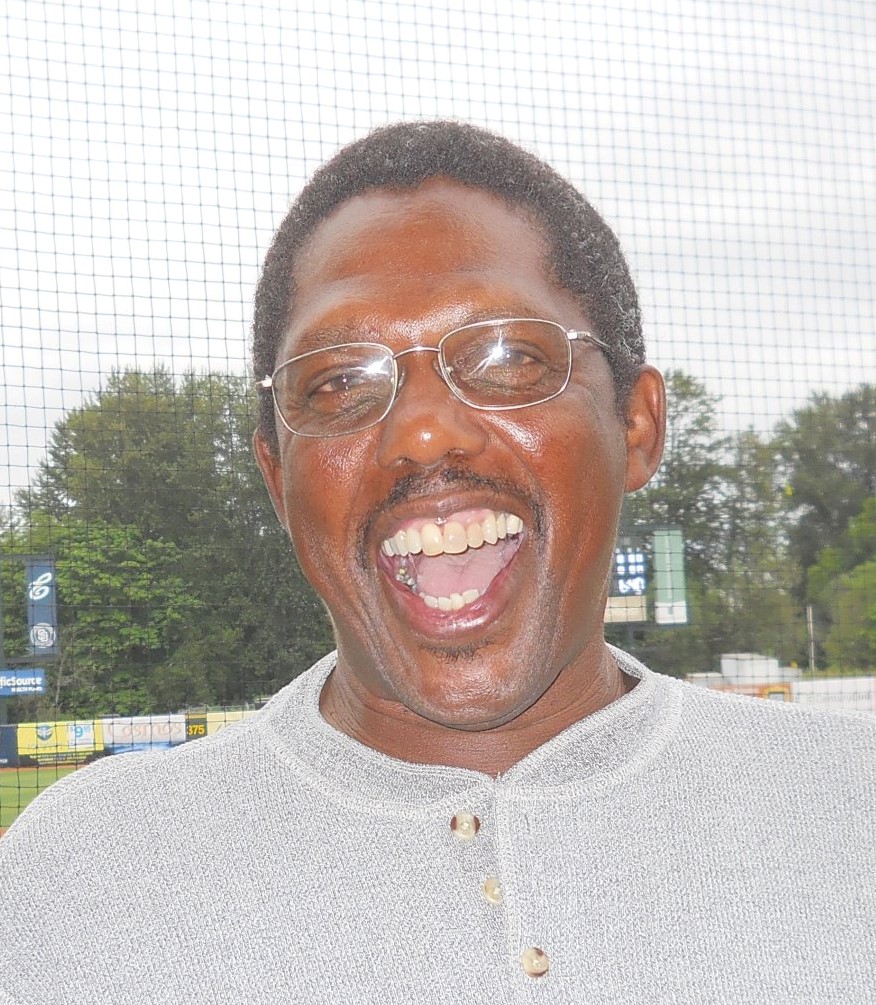
RW I think McPherson is still there [in Eugene].
JH He is. In fact, he’s still the scorekeeper — official scorer at the games down there. And he does tax returns and stuff for a living.
RW Oh, does he really? That’s so cool. I liked ol’ George, man. He’s a good dude. He’s a good guy.
Lynn Jones
JH And in fact, another of your teammates, Lynn Jones, is over in Pennsylvania. And he wants to do a book when we get done with these. He’s got stories to tell, too.
RW I’ll tell you one story about Lynn: My rookie year, I thought I could pitch, until I started throwing. I was throwing to Lynn. And he took me yard a couple of times, [laughs] and I went, okay. That was a pretty good fastball, and I didn’t think he’d catch up to it. And he took me downtown. So Lynn, he made me realize right quick that I have to have something a little bit more than this fastball, right here.
JH The fastball by itself wasn’t going to cut it?
RW Yeah, it wasn’t going to cut it.
JH Well, I mean, he was a pretty serious hitter, though. And so was his brother. Wow!
RW Yeah, he was a good hitter. I forgot what college he came out of, but —
JH It’s a little college in Pennsylvania [Thiel College]. It was a definitely a small-college-type deal. And but jeez, he hit .4-something. I just remember him as being this short, really fast guy with glasses and a big, thick mustache, who could run like crazy.
RW He was a good hitter. Probably the best one on that team. You’d have to respect him, if you’re going against him. I’m glad he’s on our team.
JH Yeah, definitely.
Geoff Combe
RW Geoff didn’t probably break an egg against a wall, man, but he had a fork ball. Back then, 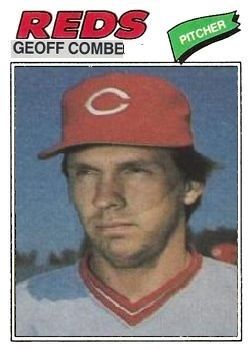 everybody called them a fork ball; I guess they’re splitters now. But the fork balls were deadly, man. And ol’ Combe threw it every pitch, just about. And I guess he went on – did he go to the bigs for a while?
everybody called them a fork ball; I guess they’re splitters now. But the fork balls were deadly, man. And ol’ Combe threw it every pitch, just about. And I guess he went on – did he go to the bigs for a while?
JH Yes, he did.
RW And he was, I mean, that little-bitty guy throwing that old fork ball and go in there and it’ll just dive, man. And I couldn’t ever figure it out. I guess my hands weren’t big enough to throw it.
With Cincinnati, right at the end, I developed a palm ball and it took me a whole year to throw it, throw it, throw it, to get to where I could throw it in the game, [laughs] but it worked like a forkball. And so it came out from your little finger to your thumb, hold it in your palm and pop it out. And then the fork ball, you know, they just hold it with the index and the middle finger. And then it has that blop-blop effect too.
Combe threw it every pitch. I ain’t kiddin’ ya. And it was nasty. And I had several guys the first year — I can’t think of their names, with Billings, that were throwing that fork ball. It was end-over-end tumble – that’s the way his fork ball would do. Deadly! Deadly!
John Harrison
RW I loved ol’ John. Of all the people that I thought would go on to coach was John Harrison. I figured John would be into baseball the rest of his life. He’s a super guy.
He’d come to me — and even after I pitched at Portland, I won’t ever forget. He knew a couple of Portland players from college, and they were good hitters. And went and talked to them, he came over and said, hey, man, they said that you pitched a hell of a game; said you kept them off balance. And they wanted me to tell you what a good job you did. I mean, John was always like that with me, man. And I miss that guy. I really do. He was such a good guy, and he probably didn’t get a fair shot, you know?
JH No. And you think of guys like him and Tommy Spencer and people like that, who never really got a fair shot with Cincinnati. They were kind of backed up, but still —
RW Yeah, I know. And they didn’t get a fair shot. And then I can see why now, looking back at my career with Cincinnati, and how there was a lot of good players — and I felt like I was one of them — that could have got up there with them. I understand why John feels that way; I can understand his frustration.
And I had bitterness too, and it really messed me up afterwards. I mean, I look back and it hurt my confidence, it really did, from [then] on out. It hurt me and it made me look at it differently.
JH How were you able to get past that or get over it — or have you gotten over it?
RW Well, I just know who I am, and I know what kind of fastball I had. And I know that I wasn’t even matured yet. And I know where I was heading with it. And I made a wrong decision later with the Rangers and all that – [but] my confidence was still hurt. And it just — and then when they got me to sign a voluntary retirement, looking back, I don’t know why I did that, but hell, I was devastated.
And yet they didn’t want me to get with another team! That’s why they wanted me to sign the voluntary retirement. They didn’t want me with anybody else. And that’s what the Astros told me: I don’t know if we can get you out of this.
There wasn’t a whole lot of minor-league teams, like now. [An organization] might’ve had a couple of A teams, maybe a AA team, AAA, and bigs, you know? Now, they’re all over the place.
JH Then it was — what? Billings, Eugene, Tampa, Three Rivers, Indianapolis. And that was about it.
RW That’s it. And people don’t understand that when you got drafted back then, it’s like a little bit more prestige than it is today. And it was just a lot harder, you know; there wasn’t that much room. And backing people up there, moving them around in the bigs, everybody’s on the shelf collecting dust, you know? The way it felt. They’ll either have to get hurt or retire —
JH Or get retired. One of the two!
RW And Cincinnati, they drafted a lot of good guys. They drafted guys that stayed pretty close. And the first year was that way, but it wasn’t as good as 1975. And so we were pretty close and classy. And Cincinnati, you kind of had a standard to go by. I mean, if you didn’t have your socks pulled up, they’d fine you. If your shoes weren’t shined every game, they’d fine you.
Greg Riddoch and his role with the Emeralds
RW You gotta have a manager like Greg to get it together and keep us loose and make you feel like you’re not pressured. And everybody, it’s just something that clicked. It’s just a special, special year. It really was.
JH It sounds like he was able to get people to relax so that they could perform to their potential. But at the same time, keep his foot on the throttle enough that everybody got their work done. Is that fair?
RW Yes. And it’s like you were talking to another player when you were talking to him. But then when it was game time, you knew who was in charge. Before a game, you go talk to him, just like me and you are talking right now: put your arm around him, he put his arm around you. You know, it’s relaxed, but when it’s game time, Hey, all right, boss, let’s get it on and see what we can do. You listen to him and then — but he can’t be relaxed. He had his own way. He had his own unique way of doing it. It turned out good. Then I don’t know. I think he went on and had some — went on to the big leagues, didn’t he? Maybe with Padres or something?
JH A couple of years with the Padres.
RW So I mean, it worked for him, and people loved him.
JH Good game manager?
RW He was a very good game manager. And he knew when he knew when to pull the string; he knew what to do at the right time.
JH Do you feel like he could tell when you were losing stuff, or when he needed to come get you? Or when he told you to keep plugging, kind of thing?
RW Yeah. I could come off the field [between innings] and he would look at me and I looked at him and just kinda nod like, hey, I’m good. I’ll let you know when I feel it going. He would get with the catcher, I’d get with him and the catcher, and they’d say, yeah, he’s still popping it in there. Everything looked good. Or hey, slipping a little bit, you know.
JH What did you learn most from Greg when you were in Eugene? People talk about his teaching skill and that he kept things loose, yet everybody got their work done. What’s your experience with that?
RW Well, he was a guy like Jimmy Hoff was: he was a players’ coach. You didn’t mind showing up early, because you could go in there and he’d be there and you can sit in there and talk to him 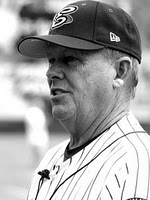 hours before the game. There’d always be players there, talking to him. He was the type of guy that just would keep things loose, but he wanted to make sure you did your work. And he understood [pro ball]. He didn’t really have to put a lot of pressure on you. He just said what you needed to do, and you do it. He’s just a really, really good guy, you know?
hours before the game. There’d always be players there, talking to him. He was the type of guy that just would keep things loose, but he wanted to make sure you did your work. And he understood [pro ball]. He didn’t really have to put a lot of pressure on you. He just said what you needed to do, and you do it. He’s just a really, really good guy, you know?
And he kept giving me opportunity after opportunity. Even though I struggled some games here and there, he didn’t mind sticking me back in there, and I appreciate that. And that’s what it takes for a player to grow. And he was really trying — I think he knew I was coming off a good year. And Jimmy Hoff and Greg Riddoch were similar as far as the players just love him. And I was very lucky to have Jimmy the first year and then Greg the next year. And I didn’t have that the rest of my career. They were two good guys that knew the game and could coach it up.
JH So many people have said — and Greg himself says – look, of all the things I did in pro ball, including the big leagues, 1975 was the best year of my career. And it was the most fun that they ever had, even though it was a short-season league.
RW We did have a good time. And Eugene was probably the prettiest town I’ve ever been in. And you could be sweatin’ working out, and drive 10-15 minutes have a snowball fight. I mean, crazy. It’s kinda down in the valley, and it was just a – man, it was a cool town and we just meshed there. It was a good place to play. Real good place to play.
JH Any other thoughts about Eugene, or other stories that come to mind?
RW Oh, just pitching against Portland …
JH [laughs] Everybody’s pretty much got Portland stories, it seems like.
RW Oh man, I got a good one! [laughs]
I pitched against Portland and won a game there — and they were hard to beat at home. And that game I won, I mean, they might have scored six, but we scored nine; I kept hanging around the whole game. I mean, they could hit; that team could hit. I had to throw probably 50-50 on breaking balls and fastballs and keep it on the outside, just to keep us in the game. I mean, they could play it, but I had something.
They had a big crowd there, and I guess me and my girlfriend Paula drove down from Eugene. A lot of people came down, and there was a ruckus going on when I was in the dugout. One of the players said, Man, there’s a hell of a fight up there! And Randy, I think it’s Paula! [laughs] So Greg looks up there and says, Aw, shit! So I look out of the dugout — yeah, she’s right in the middle of it.
JH Wow! Did she win the fight? [laughs]
RW I don’t know. I didn’t look back. [laughter]
JH Maybe it’s better you don’t know.
RW I didn’t look back! I thought, shit! That’s all I need right now! Oh, Lordy!
But yeah, that was a pretty cool stadium to play at, too. I loved to play there.
JH I see a game here, August 3. You were the winning pitcher at Portland. Eight to three was the score. Last game of a 9-2 road trip. You guys played Portland seven games in a row to make up rainouts and stuff.
RW Yeah, I remember that! We played a couple, seemed like, there and then went home to play some, I think. But yeah, it was — they were good. I’m not kidding you. That was a very good team. Somebody said they did a story about them.
JH There’s a documentary; it’s on Netflix, called The Battered Bastards of Baseball that talks all about Bing Russell and the Mavericks and stuff. And a lot of the Eugene players have seen it, and they say, gee, they didn’t put anything about when we kicked their ass in the playoffs!
RW Yeah. I didn’t figure they would, probably, on that one! [laughs]
JH Well, that ruined the story a little bit, huh?
RW They would get there, but they couldn’t win the big one, you know?
JH Moskau beat Bouton in the first game. And then Underwood beat Winkelbauer in the second 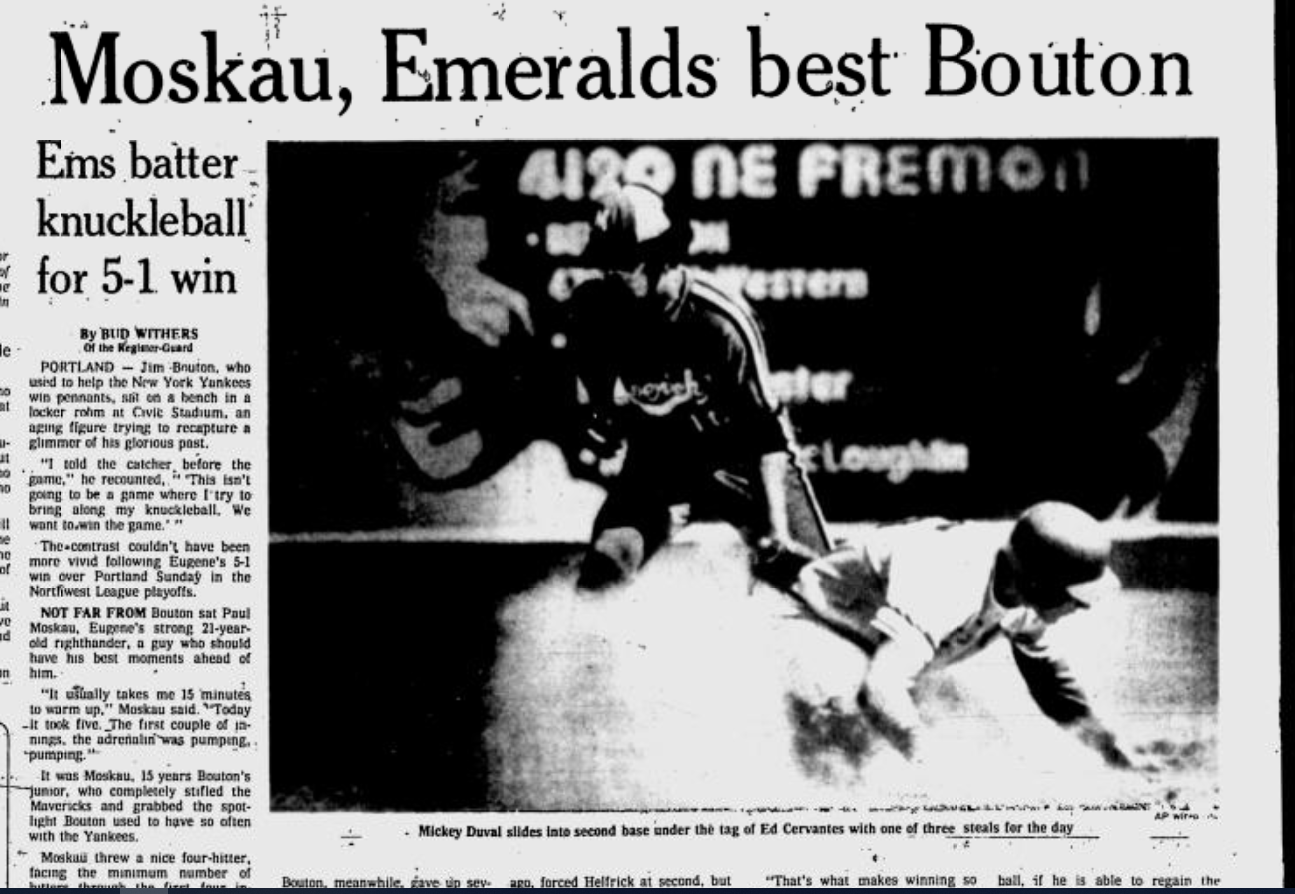 game. So yeah, you guys cleaned them out two in a row. And a lot of guys did not like Frank Peters, the manager, and some of the crazy shit that he did. And Greg is still — all you gotta do is say “Portland” to him, and he’ll yell and holler for 15 minutes.
game. So yeah, you guys cleaned them out two in a row. And a lot of guys did not like Frank Peters, the manager, and some of the crazy shit that he did. And Greg is still — all you gotta do is say “Portland” to him, and he’ll yell and holler for 15 minutes.
RW Oh man, that was — that was our rival, right there.
JH It’s funny to go back — and I’ve pulled all the game stories that I can find. And you know, Greg hardly has anything bad to say about anybody; but even in the game stories, he says things like, it’s a good thing for Portland, they’re not in our division. And Walla Walla has twice the team that these guys do; we should beat them all the time. And boy, he was fired up, even then.
RW [laughs] Yeah. Yeah. We had quite the rivalry against them. They were kinda more hot-dog-ish, you know. Kinda out-of-control type.
JH They were definitely not cut in the Reds image of those days, were they?
RW No, no, no. And that’s what pissed everybody off, you know. They didn’t like that. I guess pro ball probably didn’t like it, either. But I guess ol’ Bing Russell was doing his own thing, right?
JH Independent team.
RW And you know, they had players coming back year after year, after year after year. And you know, in the minors, you’re going every which way.
And to have a good team like [the 1975 Emeralds], you have to really mesh. And this team we had, did. Meshed right off. A bunch of good guys, man.
JH It’s amazing how many people say that, and how if you played on enough teams, that just really doesn’t happen all that often.
RW Oh no, Lord no! I really was privileged to have two good years, especially in 1975 with us. People just, you know, that got along so well, worked hard for each other and cheered for each other. And man, it was — even looking back today, I think it is special. And that’s probably what Greg’s talking about too. Because that’s hard to find.
JH A lot of times I’ve heard it described that minor-league ball is not — instead of a team, it’s like a bunch of independent contractors. It’s not a sacrifice-for-the-team kind of thing; guys have their own agendas. But boy, this team, everybody says that it just wasn’t that way; that people supported each other and did for each other.
RW Man, it wasn’t that way at all. And I know what you’re talking about. A lot of teams, they’re all about themselves and worried about their stats. That team didn’t really care. Whoever was on the hill or who was out in the field, if they’d done well, they’d just praise you. I mean, they cheer for you, and if something happened they’d feel bad for you. It was close.
After the championship-winning season of 1975, Randy had high hopes. But those were dashed in spring training 1976, in part because of a prior run-in with a rather notorious figure in the organization.
JH Did you get released after the end of 1975? Because I see you pitched in 1976 in Seguin, and that must have been — was that an independent team?
RW Yeah, that was an independent team.
And man, I tell you what, what happened was, when I was in Eugene, my girlfriend flew down and we got an apartment and — I don’t know if you know Ron Plaza.
JH Yes, I know of him; never met the man.
RW Well, Ron came in there, and he wanted me to send her home. Because my ERA was kinda up – and looking back now, I wish I had [sent her home] — and I didn’t. I just told him, I said, man, I’m doing all right. I keep us in the game – but I didn’t [send her home]. And since I didn’t do it, he was on me, man. He was on me. And I just didn’t think — there’s no way they’d release me. I mean, especially with two winning seasons back-to-back.
Man, that like to killed me when they did that. And all the managers were in there, and they were crying with me. I mean, some of them taught me.
It just ain’t right. I don’t know.
You know, it’s just something that — it really hurt my confidence throughout my rest of my career, too.
JH Well, sure. When did that incident with Plaza happen?
RW It was about three-quarters of the way through [1975], he called me in over there and I think Greg was in there, wanting me to send her home. Because I mean, I had a good season the year before. And during that spring training between before Eugene, now I had everybody looking at me. I mean, they were all high on me. And I thought, I’m good now. They’re on to me. I showed them something.
I was disappointed because I didn’t make the Tampa [club], or go to AA, and I’m glad I went to Eugene, Northwest League. But it kind of hurt my confidence a little bit there. But I went there and just kinda clipped along, and Plaza wanted me like it was. And I should have listened to him, I guess. I wasn’t a big fan of Ron, but I mean, looking back, he was kinda more of a drill-sergeant type of guy. He’s stern, man!
JH People have really polarized opinions about him. They either loved him or they hated him. Now, I didn’t know the man; I knew of him. But that is a real hot-button item for a lot of players and coaches that I’ve talked to. When you bring that name up, the needle goes all the way to one side or the other, it seems like.
RW Yeah. He called me out — I remember in spring training, I was eating an apple. And the trash can had apple cores solid around it. And when my apple missed it, I was going to go pick it up. Ron was on the tower on the wagon-wheel field. Boy, he called me out, right in front of everybody.
JH Wow!
RW So I knew right then I knew my time was near, and … but I made some bad decisions. I should have listened. And I didn’t have any bargaining power; I had to do what they said. And they were world champions, and everything’s going good.
JH Was this in spring training of 1976 that you got released?
RW Yeah.
JH When guys talk about Ron Plaza, the guys who did not like him all have stories, kinda like yours, that he was basically kind of abusive to them and killed confidence, and really hurt some careers. He affected a lot of lives, and some were positive, but a lot were apparently negative too.
RW I think so too. He was — if you can visualize Full Metal Jacket, that drill sergeant? That’s what he was like. I mean, I can handle that, but, if you had to compare Jimmy Hoff and Greg Riddoch to Ron Plaza, it’d be like noon today and midnight tonight. I mean just totally two different animals right there.
But he was over minor-league operations then, and that’s when, if he started disliking you, it was over.
I had managers, man, I had a lot of people crying with me that day and they said it ain’t right. They said, you got screwed around bad. But that’s the nature of being drafted late, I guess.
JH It’s a shame that it had to work out that way for you. There are way too many guys who have similar stories — that you gotta have a “champion” in the front office who will look out for you. And if you get a Plaza kind of situation, where somebody gets down on you, whether it’s legitimate or not, you’re screwed.
RW Yeah. And I probably should have sent her home, but I didn’t think it was affecting me. I wasn’t drinking or nothing. I was going to bed, getting up, going — it turns into a job. And if I thought it was really hurting me — but I think it’s something else: me being hurt, you know. But I didn’t think he was going to — I mean, when he was on me in spring training, man, he was all over me.
And it was like, he would get up there and hit ground balls to the pitchers. And when he hit them to me, I couldn’t even see it, hardly. I had to just block it.
JH Nice PFP, huh? [Pitchers Fielding Practice]
RW Oh, yeah, man. And that’s what he — you know, you can feel it. It was just a bad situation for me. It really was.
JH You know, John Harrison said basically the same thing, about when Plaza would hit him ground balls: he would just hit rockets to either side of him, and then kind of taunt him about it. And it became this thing where, you know, Harrison was diving for balls — this is just taking ground balls, and he’s diving just trying to do anything to field them. It’s like Plaza’s just got to test him to see if he can break him.
RW That’s the way he was!
JH And so he didn’t play any favorites where that was concerned. He was pretty much like that to everybody, I guess.
RW Yeah. He was awful right there. He would taunt you. He would beat you up with it. I mean, I understand fielding ground balls; some comebackers are hard. That’s fine. But I mean, I’m talking about full swing with that fungo, man. He was bringing it, and I mean, it was just beating all of us up, like all these pitchers, just getting beat up.
JH What I didn’t understand about that whole thing was how a guy like that got in the Reds organization. Because he’s counter to everything that they stood for in those days. He’s just like the polar opposite of what you would have thought a Reds coordinator, instructor, whatever, would be.
RW Yeah. Because I don’t see how Greg or Jimmy or any of them could get along with him, I’ll be honest with you. Cause they’re so much — so different, but it seems like the Reds would do whatever he said. I don’t know how that happened. I don’t know where he come from, or how it happened. I didn’t try to figure that out. But I really don’t know anybody — and there might be some people out there who say they loved him, but I don’t know who it would be.
JH Well, your old teammate, Ron Oester, was one of them who said —
RW Well, now, Ron was different; a little bit different. I don’t know how to explain it. I love Ron Oester; I love him to death. I don’t know how he would say — I mean, I understand he might say he likes the managers and stuff, but I don’t know. Maybe it was just a totally different situation with him. But one of those deals where you didn’t see Plaza and a minor-league player sitting over there talking and having a friendship conversation, like you would Greg or Hoff, you know? It wasn’t that way.
Starting over
JH So then you had to catch on with Seguin and pitch there?
RW I got with them and the Astros were starting to come in, wanting me, and I had a decent year at Seguin. My confidence, when the Reds released me – and they got me to sign a dadgum, a voluntary retirement form.
JH Really?
RW Yeah, they just kept on me about signing it. They wanted me, voluntarily, to retire. That’s what the form was. And I signed it, because I was devastated, man. And the Astros had to go through all kinds of stuff to get that voluntary retirement released before they could sign me.
JH So this is in 1978, with Daytona Beach.
RW Yeah. When they picked me up, it was the worst team in baseball I got on, then. I was actually throwing pretty good. I thought I was pitching pretty good. And I won eight or something.
JH It looks like you didn’t play for anybody in 1977. How did that work, that you had a year in between Seguin and Daytona?
RW I’m trying to think on that. I can’t really remember. I know I went they wanted me to come to the Astrodome down there, and it was Bob Cluck. You ever heard of him?
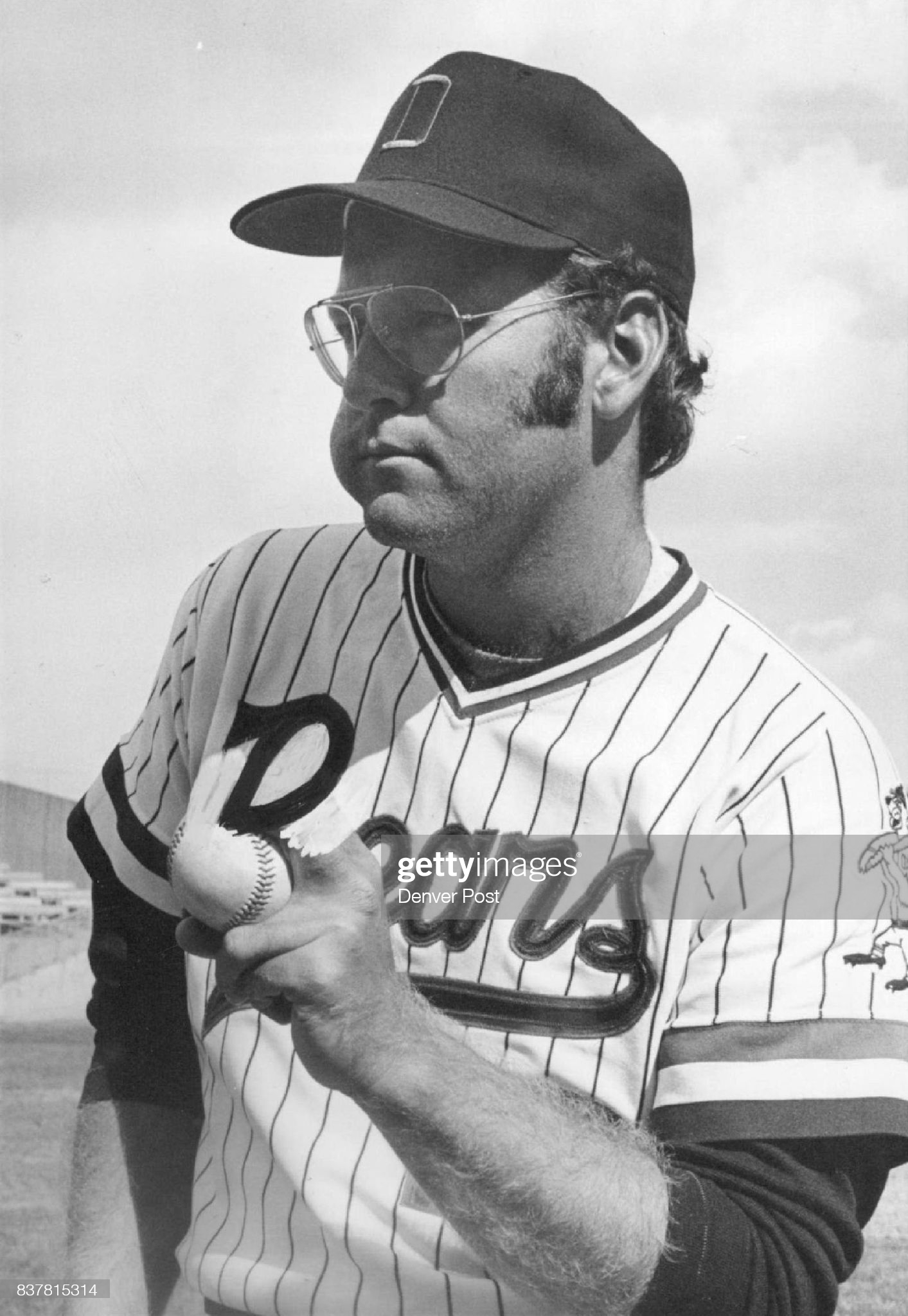
JH He was the pitching coach for the Astros, right?
RW Yeah. I went down and started working out with him, and then I’m pitching some down there for them. They signed me right there. They’d been watching me, because they signed me right there. And I don’t know. I just, I was still a baby. I mean, I remember I didn’t even — I wasn’t even shaving yet, you know?
[laughter]
RW And my velocity just kept getting better and better and better and better and better. And then they released me — I don’t know what it was. And they said, well, you got a real good fastball, but — I remember exactly what Cluck told me. He said, you got a real good fastball, but you ain’t no Floyd Bannister. I said, well, I don’t want to be Floyd, really. But I just want to be me.
And then I came out of that, and I started getting these people coming around, wanting to sign me to play slow-pitch softball and travel around the United States. And they started throwing money at me. I thought, shoot, that’s more than I ever made in pro ball.
And so when I was just thinking about doing it, the Rangers offered me a contract. Then [Rangers player/executive] Tom Grieve, I went to Arlington Stadium, me just me and him. And I threw about 10 pitches to him and I could blow it — by then I was really throwing hard — and I wanted to go to AA. I said, look, just let me go there. [Get] my confidence up, everything. I have a shot. And he said, I’ll move you up in two weeks. I’ll send you to A-ball. If you do good, we’ll go up to AA in two weeks.
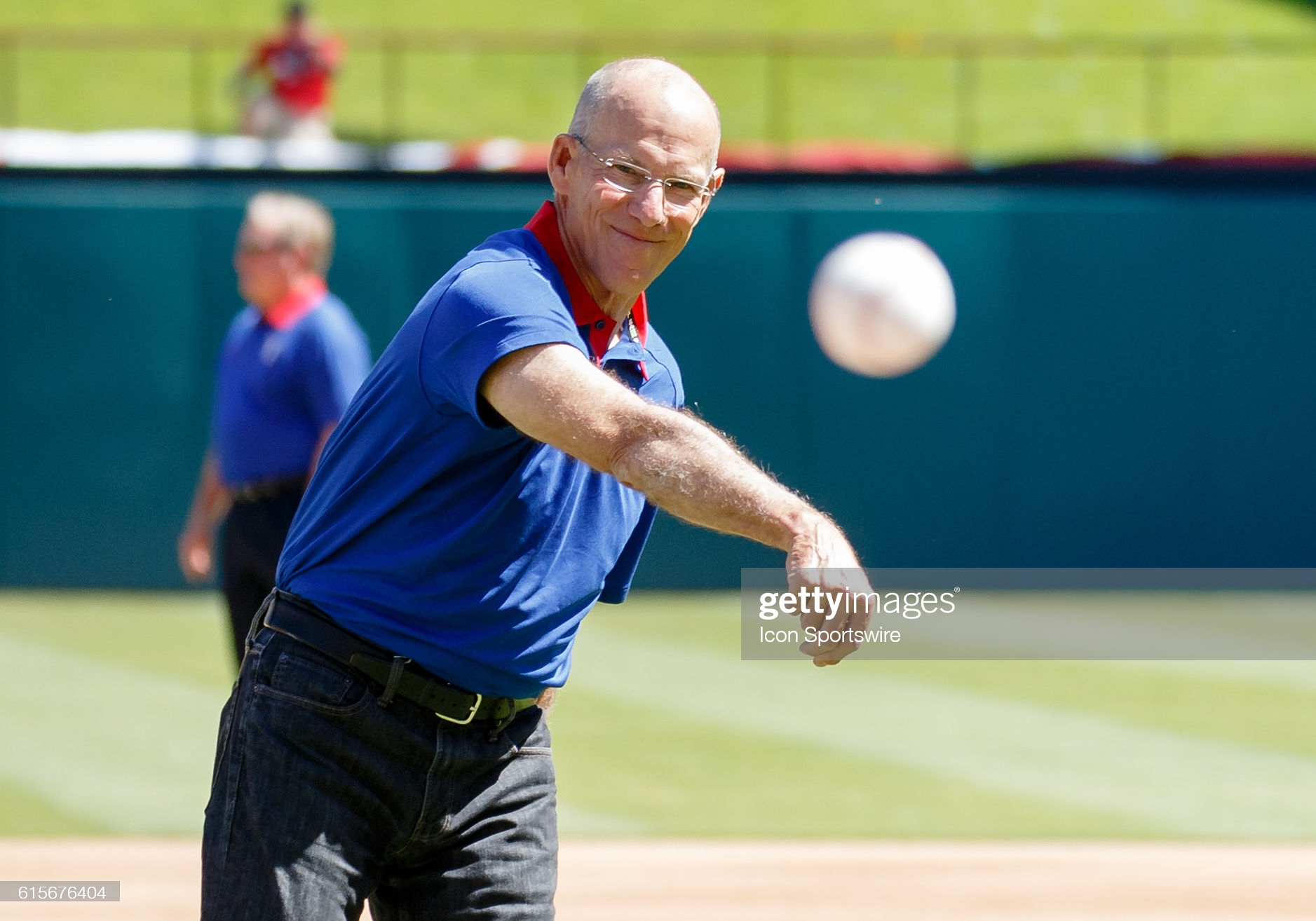
And here’s how stupid I am: I turned it down. I turned it down. They gave me a week to think about it. And I turned it down and signed, started going around playing softball. Believe that.
Now it’s kinda, you know, talk about bad decisions. And I did that for like 15 years, just flying around all over the place on during the weekends playing [slow-pitch]. So that was a — I don’t know. I still can’t believe it today, that I made that decision. [laughter]
JH If you had that good fastball like that, they didn’t think maybe we can make him a short man. Fix his arm up and make him a short man or something?
RW Yeah. But here, I’m going to tell you the truth. This is, when I went over to see Grieve I told him, I said point-blank, I said, I can hit and I can run, and I can catch and throw hard. I said, let me cover the outfield for you.
Cause I, I just didn’t — my confidence on my own was getting shot. Now, I still could pitch and I knew it, but that’s why I went over there, really. And he said, well, you prove to me you can’t pitch. And this is another thing he offered. He said, if you prove to me you can’t pitch, then we’ll put you where you want to be — in the outfield.
And I turned it down. How stupid is that?
JH Well, you were young. Big regrets for not doing that?
RW Oh, wow! Oh, yeah. I mean, just talking about it, it’s – [long pause] yeah. Getting with the Rangers, you know, around here and — oh yeah, definitely I regret it. I mean, he was gonna give me a shot. If things weren’t going well on the hill, he would put me in the outfield. So I regret it big-time, you know?
JH That’s a shame. But who did you play slow-pitch for?
RW A team called Camera Shop here. And the Austin Capitals. And I played several – Larry’s Cars here in Dallas. Played with a lot of teams here in Texas, and we’d just fly around.
I played slow-pitch in Dallas-Ft. Worth in those days too, but I never saw Randy in the lower-level leagues I played in, for some reason!
JH I got a feeling you were playing in a little higher leagues than I was back in those days. [laughter]
RW It was Super Open. We’d go to Vegas a lot to play, and played with the, you probably heard of – can’t remember the name.
JH I was thinking of Steele’s as one of the ones I remember.
RW Yeah. We played Steele’s all the time.
Coaching
JH So you played slow-pitch for a bunch of years after that, but have you always been in kind of the same area of Texas? You grew up there, and you’re still in the area.
RW Yes. We’re still in this kind of Fort Worth, Burleson right now, that ain’t far from Alvarado, 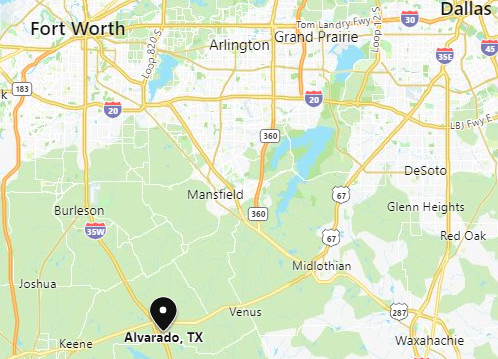 which was actually my hometown.
which was actually my hometown.
JH Because you went to Alvarado High School, right?
RW I went to Alvarado High School and — a bunch of tough kids in that town. [laughs]
I’ll tell you what, I can coach these kids today with all their knowledge that [the Reds] passed on to me. And I’ve got it right up here, and I can pass it on to them; things that these kids don’t know, hardly, nowadays.
JH You’ve done quite a bit of [coaching youth baseball], haven’t you? And you’re still doing that?
RW I’m still working with kids around the Dallas and Grapevine-Colleyville area. And I do some instructional stuff with them and things, and I worked with the Dillon Gee — had him ever since he was little up when my son — both of my boys went to play football. One of them at University of Houston, the other one went to Eastern New Mexico – they’re quarterbacks. And so, yeah, I’ve always been in sports and working with these kids all through — since back in the day.
JH Is it pretty rewarding to still be doing that?
RW Yeah, it is. And I’m telling you, they just don’t know what — I learned a lot with the Reds. I mean, and finishing my rookie year, finishing the top of the league, they wanted a piece of me. So they wanted to come to me and tell me. And I got a lot of coaching. I got a lot of knowledge, and they wanted a piece of me after that. And they were really working me, man.
And I learned so much — from especially Scotty Breeden and all of them. I mean, they were stern, they were hard, but they were growing me. I was growing up. I mean, they were teaching me a lot, and I thank God for having all the knowledge. It’s just a lot of knowledge that they passed on to me and I appreciate, you know.
Reflections
JH So basically, you feel like you had a big-league arm and needed a better situation, and to not get hurt? Is that kind of a summary?
RW Yeah, I think I could have gone ahead, and the next year, I was getting better — my arm – there was a little twinge there, but I started gaining my fastball back — I mean, not back, but I was starting to just, it just kept coming up, up.
When I got drafted, I probably needed another two or three years, probably school, and then I would have been in good shape. But I think I was too young. I mean, although I held my own, I was probably too young. But my arm was developed extremely well. And even after baseball was over, and I went to the Rangers and Tom Grieve would catch me, I threw 10 pitches to him and he said, okay, we’ll sign you.
JH It must’ve been a good fastball, if it only took 10 pitches.
RW Yeah. He said he was ready to do it right then. So I was starting to turn into a young man. And everything was really picking up for me, but I made the wrong decision. And I was already hard on myself, and anything short of the Hall of Fame, I’d probably been down on myself anyway. So who knows? [laughs]
JH Well, at least you got a shot; at least you got to try it. I’m sorry it didn’t work out for you. But hopefully when we get this book done, we’ll all have something we can look back on and have a good smile and a few laughs about.
RW Yeah, that’d be great. Hopefully that book will do well and people can get a kick out all of the stuff. And then Greg can get some — I hope everything works out good for him.
I’m glad you called me. I had some wins for them. I just wasn’t really on top of my game, and I just thought, you know, if I kept us in the game long enough, we’re going to find a way to win; we always did.
JH Well, the pitchers, holding them down, had a little something to do with that.
RW Yeah, I hope so. A bunch of good guys. I’ll never forget them. And that was a pretty special year. A lot of good guys on that team.
